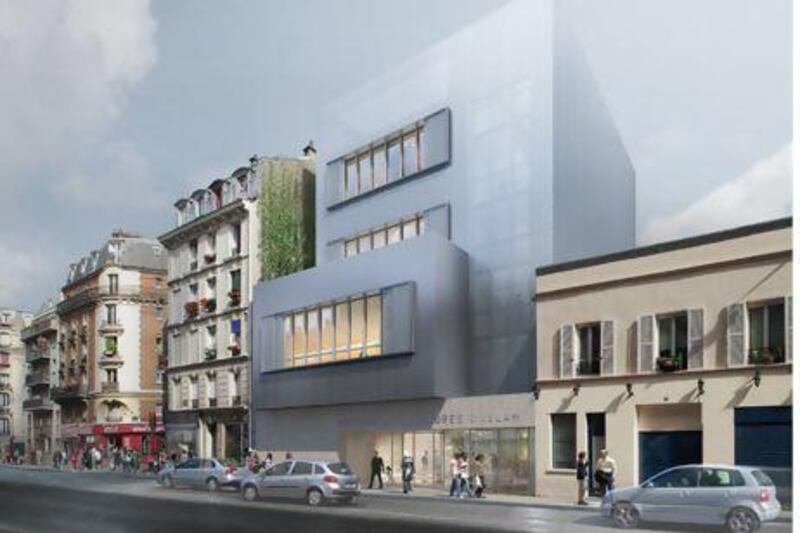Located in one of Paris's poorest districts, the Institut des Cultures d'Islam (Institute of Islamic Cultures) is sometimes perceived as the poor cousin to the French capital's celebrated Institut du Monde Arabe (Institute of the Arab World). While the IMA receives a great deal of publicity for large crowd-drawing exhibitions, the ICI has a more discreet profile, focusing on integration and accessibility to the arts, firmly rooted in its local neighbourhood in the 18th arrondissement in the shadow of the Sacré Coeur.
The ICI opened in 2006 as a joint initiative by the mayor of Paris, Bertrand Delanoë, and the mayor of the 18th arrondissement, Daniel Vaillant. Since its inauguration it has been housed in modest premises in the neighbourhood known as the Goutte d'Or but at the end of 2013 it will move into the first of two shiny new architect-designed buildings not far from its current location.
Jamel Oubechou, the president of the ICI, is keen to point out that the institute reaches more widely than either the IMA or the Cité Nationale de l'Histoire de l'Immigration (Museum of Immigration). "We have an emphasis on the cultures of Islam, in the plural, so we reach beyond the Arab world. Through our programme we can touch on issues that impact on Islam, for example in the States and across Europe. As for immigration, that's a subject that we can deal with but it's a subject among others."
The ICI programme has four main aims: the discovery of the diversity of Islamic cultures; how contemporary art reflects these cultures; the study of religion from a cultural and scientific perspective; and Islam's contribution to a universal cultural heritage.
With a dynamic programme of art exhibitions, concerts, cinema and workshops, the ICI seeks to reflect Paris's cultural diversity and to respond to the needs of its local, predominantly Muslim, community. Working with local and cultural organisations and university partners, it focuses its activities upon the rich variety of cultures associated with Islam, regardless of geography or political context.
Each September the ICI hosts the Festival of Islamic Cultures, which focuses on a particular country or theme such as Islam in the US, Algeria or Sufism. Writers, artists and intellectuals exchange knowledge and experience with a public of all ages.
"We're a very young institution and we're still working on building up partnerships on an international level," explains Oubechou. "We often invite speakers from abroad. We've had to work with a small budget but as time goes on, we hope we'll be able to spread our wings. This year our budget increased by 30 per cent. Of course, we attach great importance to accessibility to culture but above all, we aim to offer a programme of quality."
With courses in written and spoken Arabic, the ICI also aims to establish itself as a resource centre for all those interested in Islamic civilisation and art, in particular the contemporary arts.
It is funded mainly by the city, to the tune of €23 million (Dh110m); a further €7m was raised by the inclusion of two prayer rooms in each new building, to cater to the needs of the local community. Of the two buildings, the first, ICI Goutte d'Or, will have teaching facilities, artists' residences, a hammam and a prayer room. The second building, ICI Barbes, will be given over to exhibitions, lectures, theatre, a tea room, resource centre and the second prayer room.
"We intend to operate at a local level as well as for a wider Parisian public, on a national level and eventually on an international scale."
For more information, visit www.institut-cultures-islam.org
Follow us
[ @LifeNationalUAE ]
And follow us on Facebook for discussions, entertainment, reviews, wellness and news.





